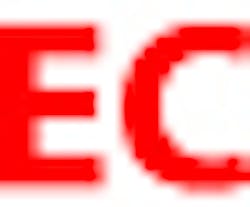Partnerships, Training & Innovation Top South Africa Chapter’s List of Goals
The South Africa Chapter of IECA (IECA-SA) is pursuing some groundbreaking partnerships and programs with both government and academic agencies. Below is a summary provided by Chapter President Lehman Lindeque, Chapter Secretariat Cobus Meiring, and Louise Mare of Natural Bridge Communication that details the chapter’s latest activities.
Meetings With Key Government Officials
Chapter leaders Lindeque and Meiring recently visited the Western and Southern Cape of South Africa to meet with several important government role players in soil conservation. The entities they met with included the following:
- Dr. Christo Marais, deputy working for Water Programme
- Andre Roux, director, Department of Agriculture, Western Cape, Elsenburg
- Francis Steyn, director, Soil Conservation, Western Cape
- Professor Christo Fabricius, principal, Nelson Mandela Metropolitan University (NMMU), George Campus, Saasveld.The meetings were set up in order to achieve the following objectives:
- To develop a stronger partnership basis for IECA-SA amongst government and semi-government entities involved with soil conservation and erosion control
- To secure funding for IECA-SA pilot projects in the future
- To encourage government role players to engage IECA-SA in decision-making and policy development
- To determine where IECA-SA can play a more significant role in soil conservation in the years to come
- To explain to the various entities the IECA-SA objectives, mandate and stake holder database
- To lobby for a greater government awareness and recognition of the plight of soil conservation in South Africa
- To highlight the perceived gaps in erosion control and soil conservation as identified during the 2009 IECA–SA conference
- To encourage government stake holders to become paid members of IECA-SA and IECA-Innovation
- To lobby participation in the 2010 George (Saasveld) conference
IECA-SA and Working for Water Cooperation
Working for Water is South Africa’s premier public works–type program. In addition to its core objective of addressing invasive alien species, Working for Water is in the process of enlarging its scope of work to include soil conservation. What is of particular interest to IECA-SA is the intention to address serious donga erosion problems in the former homelands. In these areas, land cover is delicate and erosion levels extremely high.
Discussions were fruitful, and Dr. Marais indicated that the Working for Water budget is set to grow well over the R1 billion mark in 2011, and a substantial amount of that will be invested in soil conservation projects.
However, Working for Water recognizes the shortfall in skilled personnel in soil conservation work and hopes to make use of IECA-SA in facilitating the training of more technical project managers.
Finally, Dr. Marais indicated that he would like to be in attendance when IECA-SA meets with NMMU to see if he can add value to the possibility of training more soil conservation specialists.
IECA-SA and the Department of Agriculture, Western Cape
In many respects, the Department of Agriculture, Forestry and Fisheries (DAFF) in the Western Cape is the best equipped and forward thinking agency regarding erosion control and soil conservation of all the Provincial Agricultural Departments in South Africa.
At the September 2010 conference, IECA-SA expects a strong presence of departmental individuals. Because of this, the chapter wanted to proactively meet with management well in advance of the conference. Because of the many issues raised by DAFF employees at the 2009 conference, chapter leaders suggested that a preconference workshop be hosted to address issues that DAFF felt might be better resolved outside the conference, an idea that the department liked.
Furthermore, the department expressed concerns regarding the scarcity of available personnel in dealing with erosion control and soil conservation matters on the ground, and essentially reiterated what Working for Water was saying in this regard.
IECA-SA and the Nelson Mandela Metropolitan University, George Campus
For some time, the IECA-SA Secretariat and the NMMU have been discussing the option of establishing a faculty or chair at the NMMU aimed at furthering soil conservation studies as a career option.
The concept was first tabled when IECA-SA approached the NMMU to host the annual conference at Saasveld. So, when the meeting took place with Dr. Fabricius, the principal of the Saasveld Campus, discussions were in a fairly advanced phase of development.
The surprise factor was the attendance of Dr. Marais from Working for Water and his interest in erosion control and soil conservation. Again, the concerns were raised regarding the countrywide lack of skills development in soil conservation, and soil conservation as a career option in particular.
After much discussion, it was agreed that NMMU would write to Working for Water and request the possibility for fund allocation to develop a chair at NMMU to deliver on the demand for soil conservation training, under the auspices of IECA-SA. This development was no small feat, and the chapter is optimistic that the request will be successful.
NMMU and IECA Innovation
During the same meeting, chapter leaders explained to Dr. Fabricius the plan to develop a directorate within IECA-SA called IECA Innovation, specifically to house corporate members and to create a vehicle for research and product development.
Dr. Fabricius pointed out that the NMMU has a similar research entity, and that they would be interested in joining IECA Innovation.
The chapter plans to conduct subsequent meetings to work out the details for the IECA Innovation program as well as to move forward with the above partnership initiatives. Stay tuned for more updates from the chapter on their progress.
